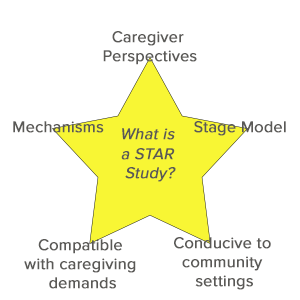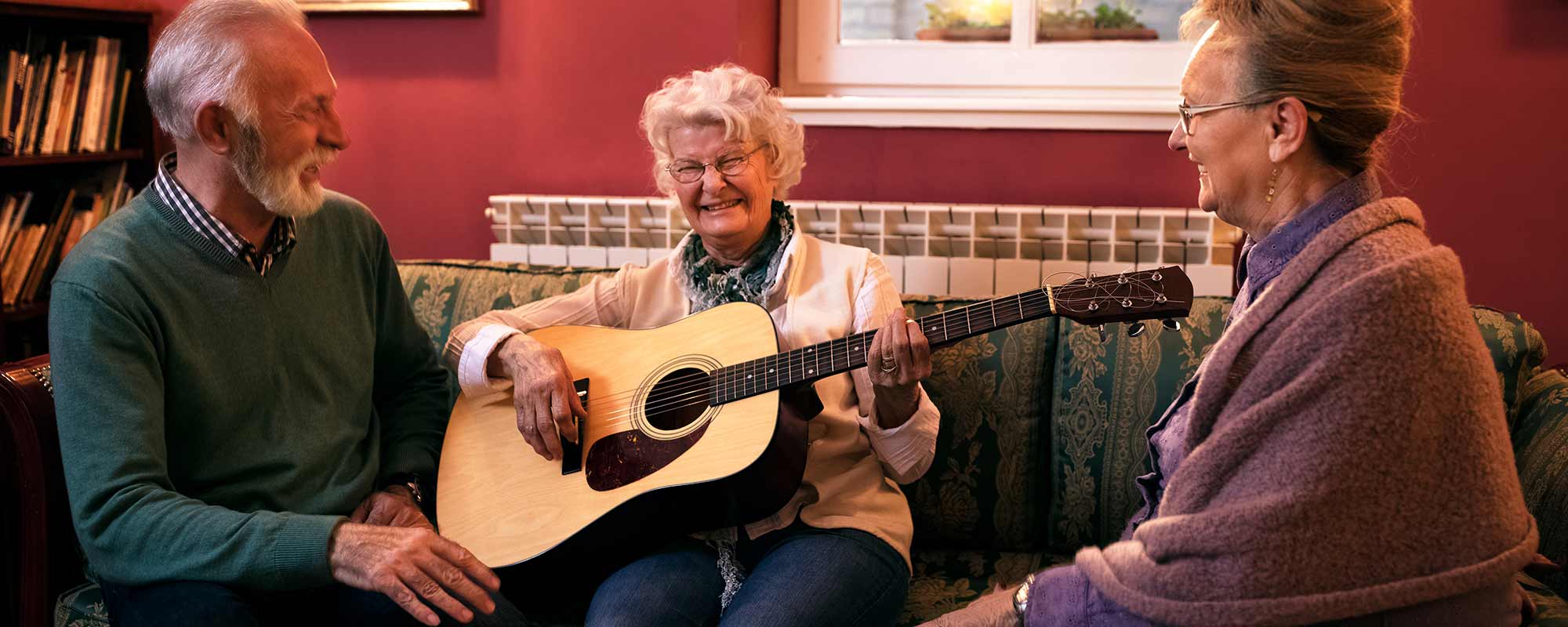Overview of Pilot Program
The mission of the Rochester Roybal Center for Social Ties and Aging Research (the STAR Center) is to support the social well-being and healthy aging of those caring for a family member with Alzheimer’s disease or related dementia (ADRD).
In support of this mission, the STAR Center Pilot Award Program seeks to support pilot studies that contribute to the development and implementation of novel, principle-guided behavioral interventions that promote social well-being and “connectedness” in caregivers - over 50 years of age – caring for a family member with ADRD.
The STAR Center seeks to support pilot research that falls along the continuum of the NIH Stage Model of Behavioral Intervention Development, from research on mechanisms of interventions that promote social connectedness to dissemination and implementation research. Multidisciplinary investigative teams are encouraged to apply.
Pilot Program Research Priorities
Rationale for Targeting Social Connectedness
- Social connectedness represents an untapped intervention target to improve caregiver well-being and health. Older caregivers for family members with Alzheimer’s Disease and Related Dementias (ADRD) are at risk for social disconnectedness – including isolation and feeling of loneliness -- that impacts health and quality of life. Caregivers who report high social connectedness appear to be buffered from high caregiving burden because they perceive more positive aspects of caregiving. Barriers to connectedness among caregivers are numerous, varied, and dynamic.
- Current interventions for those caring for someone with dementia effectively improve outcomes for the family member with dementia and reduce caregiver burden, but do not improve connectedness for the person providing care. Other interventions (e.g., caregiver support groups) have not been tested with regards to connectedness. The evidence base for strategies to promote connectedness is extremely limited. Promising interventions are multifaceted, intensive, and/or involve significant time out of the home, rendering them infeasible for most caregivers.
- There are no evidence-based interventions for promoting connectedness in older caregivers for individuals with ADRD. The complexity of the biopsychosocial context of caring for a family member with ADRD, and the varied challenges faced by caregivers, precludes the possibility of a one-size-fits-all strategy to increasing connectedness. Rather, interventions to promote connectedness in caregivers must be personalized to accommodate a diverse set of circumstances that function as barriers to connectedness.
- Consider an adult son whose mother with Alzheimer’s lives with him and his wife. His wife works nights as a nurse. Before his mother moved in, he used to socialize with friends while playing golf, but now he is unable to join his golf league in the evenings because his mother screams and throws things when he tries to leave her in the care of a respite volunteer. This caregiving situation will require different intervention strategies than those needed for a caregiver who feels guilty leaving her husband’s bedside for even a few minutes and thus does not leave her home even when support is available. Even the same caregiver may need new strategies over the course of the disease as the context and stressors associated with caregiving change. Further, there may be additional interpersonal process or stress mechanism targets that can optimize interventions to ensure behavior change that supports social engagement. The scientific premise of the STAR Center is that to make a significant impact on the problem of social disconnection in older caregivers for individuals with ADRD, interventions are needed that can be combined into a modular format to meet a diverse set of needs while maximizing resources and reducing demands on caregivers. Such modular approaches are useful for problems that are complex and that change over time and also increase the likelihood of successful implementation outside of a research context.
- The over-arching objective of the STAR Center is to develop a portfolio of mechanism-formed and principle-driven behavioral interventions that are complementary, and can be combined and integrated over time, and that effectively promote social connectedness for caregivers. To do so, The STAR Center will serve as a scientific “hub,” synthesizing findings across STAR-funded pilot studies and enabling the development and, ultimately, implementation, of a coherent and impactful intervention portfolio.
Pilot Program Priorities
- The STAR Center will prioritize funding of pilot projects that incorporate innovative study design components and intervention characteristics: 1) examining mechanisms of change; 2) including caregiver perspectives; 3) explicit plans for movement along the NIH Stage Model of Behavioral Intervention Development;18 4) consideration of intervention fit with community settings for effective implementation; 5) continual re-evaluation of interventions for compatibility with caregiving demands. These five points of innovation constitute the STAR Center priorities that address key limitations and gaps in the literature on interventions for social connectedness and for caregivers.
- Projects will be selected with an eye towards the STAR Center objective to develop a portfolio of behavioral interventions -- one that can be combined into a modular format and supported by technology, easily implementable in community settings (including those of our community partners), compatible with a diverse set of caregiver needs, and simultaneously maximizes resources and reduces demands on caregivers.

